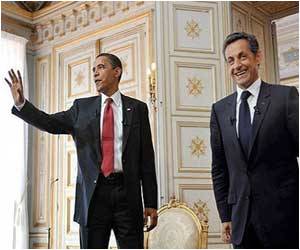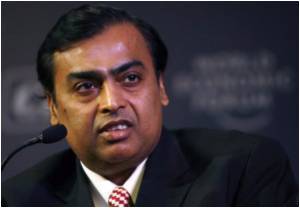
The 100 wealthiest Indians have a net worth equal to 25 percent of India's GDP and Premji's donation -- by far the largest ever made by an individual -- was seen as a challenge to others in the ultra-rich club.
While charitable giving by the wealthy is widespread in countries like the United States, it is far less established in developing nations such as India and China.
Arpan Sheth, author of an overview of philanthropy in India by global consultancy Bain, says the charitable potential of the world's second-fastest-growing major economy is huge.
"Should individuals (in India), particularly the well off, be giving more? And can they afford to make more and larger donations? The answer to both questions is, 'Absolutely yes'," Sheth said.
India's booming economy -- expected to grow 8.5 percent this year -- minted 17 new billionaires in 2010, driving the national total to a record 69, according to Forbes magazine.
Advertisement
But philanthropic activity has failed to keep pace, partly, Sheth believes, because the rapid accumulation of individual wealth is a still a relatively new phenomenon.
Advertisement
Ambani's father was a rags-to-riches tycoon, who started off as a small-time textiles trader and went on to found and build Reliance Industries -- now India's largest private sector firm.
There is also a suspicion that charitable networks in India are not professionally managed and so donors fear their contributions "won't be put to good use or are at risk of being misappropriated," Seth said.
The Bain report noted that it normally takes 50 to 100 years for a culture of philanthropy to emerge, and Sheth stressed that charitable giving in India had yet to attain the same social cachet it attracts elsewhere.
"Instead, many of the newly wealthy view increased material wealth as the key to improving their social standing," he said.
Open displays of wealth are often more admired than criticised in India, where the rich commonly spend hundreds of thousands of dollars -- sometimes millions -- on lavish weddings.
Mukesh Ambani's construction of a billion-dollar, 27-storey home in Mumbai, where 60 percent of the 18 million population are slumdwellers, raised some eyebrows but little overt resentment.
Wipro's Premji, known for his frugal lifestyle, said conspicuous consumption was common in countries climbing the wealth ladder.
"You see it in China, Indonesia, Singapore, Thailand. For the first few years, people want to show visibly they are very rich," he told AFP.
In India, individuals and companies account for just 10 percent of charity funding, compared with 75 percent in the United States.
"Our profile is closer to China, where giving by the government far exceeds donations by individuals," Sheth said.
Traditionally, so-called "old money," embodied in the likes of India's 142-year-old Tata Group conglomerate, has focused on promoting the welfare of workers, with health care and housing.
Other big Indian business houses gave money for building Hindu temples and other religious causes. Rich individuals also helped in their family villages by building schools and wells.
But according to philanthropy expert and former New York investment banker Deval Sanghavi, there are signs of donors widening their horizons and looking to tackle India's education, health and other problems on a macro level.
"Initially people thought it necessary to help those closest in their households or villages, but now they realise help needs to be on a wider scale," Sanghavi said.
Wealthy individuals now are "getting involved in charity and wanting to change the country," he added.
Together with his wife, Sanghavi runs the Dasra (Enlightened Giving) foundation, helping donors pick charities which can use their money best.
Sunil Bharti Mittal, founder of India's largest mobile company, has set up 237 schools to educate the poor, saying he wants to help children break out of the "generational poverty cycle."
And global charities working in India, like Oxfam, have begun soliciting funds locally and not just overseas.
"Our economy has been growing by nine percent for almost a decade. People have more disposable income and want to be part of the solution," said Kunal Verma, marketing director at Oxfam India.
The need for charitable funding in India is self-evident.
Some 42 percent of Indians, or 455 million people, live on less than 1.25 dollars a day, according to the World Bank and India's statistics on health, infant mortality and malnutrition are worse than those for sub-Saharan Africa.
But there's little sign yet of India's rich taking "The Giving Pledge" -- an initiative by Microsoft co-founder Bill Gates and billionaire investor Warren Buffet that asks the wealthy to donate half their fortunes to charity.
The duo organised a dinner for China's mega-rich last September and say they may host a similar event in India early next year.
Billionaire Shiv Nadar, the founder of tech giant HCL who pledged in June to give 130 million dollars to education, believes India's rich are still not ready to embrace the Gates' concept.
"When it comes to giving, there aren't many people who will happily give away even one percent" of their wealth, he said.
Source-AFP









